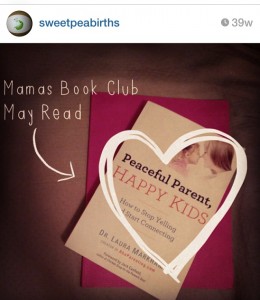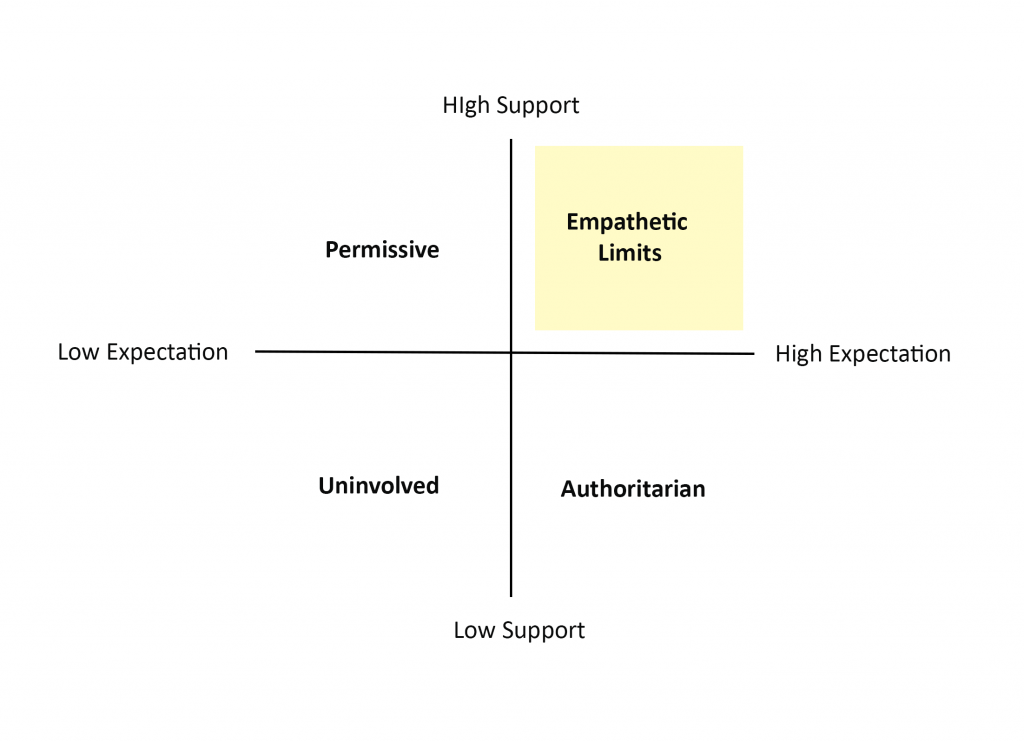A couple of weeks ago I heard that Dr. Laura Markham was coming to the town I live in, Pacific Grove, and would be speaking at the charter school just down the street from my house.
I knew I had to go because 1) seriously this is such a small town and being so close (but-not-so-close-when-you-have-a-toddler-and-one-car-and-a-million-logistics-to-consider) to Santa Cruz and the Bay Area I was actually kind of shocked at how convenient this venue was for me and 2) Dr. Markham’s blog & then book have been a sound resource for us for quite some time. We have talked about her website on SPF before and I also read her book as part of a mama book club back in May.
I bought my ticket & headed out alone Tuesday night, Moleskine and pen in hand. It was a great talk + Q&A and even though I already really liked the Aha! Parenting site and the book I enjoyed Dr. Markham much more in person and was so glad that I went. I will try to recap most of what was discussed as best I can below!
There were three key takeaway’s Dr. Markham wished for everyone to remember:
“You always have the power (as the parent) to calm the store or blow it up into a tornado”
“Parenting is only 10-20% guidance and 80-90% connection.”
And the parenting “sweet spot”, empathetic limits.
“You always have the power (as the parent) to calm the store or blow it up into a tornado”
In order to be able to help or calm a difficult situation with your child Dr. Markham recommends that you first need to regulate your own emotions.
>> Don’t take it (whatever your child is doing/saying/etc) personally.
>> Remember you are the role model.
>> It is not an emergency.
>> Stop. Drop. Breathe
>> Don’t act while angry.
When a huge tantrum is taking place, a road map for how to react would look like this:
Calm yourself (Stop. Drop. Breathe.)
Admit your contribution to the incident (were you distracted & not listening to your child? talking back aggressively or rudely to them? being dismissive?)
Connect with your child (stop what you are doing, look him/her in the eye, hold him/her, etc.)
Empathize (understand his/her perspective). You have to actually care about your child’s point of view and needs in that moment.
Set a Limit (we don’t yell/kick/talk to each other like that no matter how upset we are).
Help him/her work through their upset.
“Parenting is only 10-20% guidance and 80-90% connection.”
Because children will not accept guidance without connection. Even if you respond to your child with compassion and empathy in the moment it won’t work if there isn’t more 24/7 “preventative maintenance” connection between the two of you.
Connection Power Tools
*empathy
*roughhousing & laughter
*special time: one-on-one, uninterrupted, unstructured time that is directed by your child
* time- in’s – holding space so your child feels safe to work through their emotions, they need to either cry or laugh to make themselves feel better during/after a tantrum or meltdown. They may not want you to physically hold them but being right there will allow them to know you are present & available whenever they do need you.
All emotions and needs your children have are ok, we should allow all feelings, it is just some behavior that may need to be limited. Emotions drive behavior, so in order to change behavior we need to help them with the feelings that are actually driving the undesired behavior. Once they can manage their emotions they will be able to manage their own behavior. Which leads us to the next topic…
The parenting “sweet spot”, empathetic limits
Dr. Markham does not teach that being as connected with your child as possible means having low expectations of them. It is actually high expectations that will help teach them and give them opportunities to practice self discipline. She does not believe in punishment or imposed consequences, bribes or yelling as a way to achieve desired behavior.
Punishment does not work to improve behavior because it does not address the underlying cause of what is driving that behavior, your children will only learn to lie to circumvent punishment, act out in other ways, and not learn to self regulate or self discipline. Self discipline is the act of giving up something you want for something you want more, and in order for this to develop we need the repeated experiencing of having to chose, in order to “practice.”
It is also beneficial to empower your child to repair. Instead of punishing them, work together to come up with a way to “right” the behavior. Many children, especially strong-willed ones, are experiential learners. They have to *want* to do something, and arbitrary consequences made up by a parent will never appeal to their personal integrity.
How to Enforce Limits:
> Get in your child’s face in a friendly way
> Empathize/ Give Wish Verbally (“I know you want to keep playing and I bet when you are older and live on your own you will always play straight through dinner and not eat, but in our house we all eat together so right now it is time to stop playing and eat with us.”)
> Side step a power struggle by giving choices
> Invite cooperation with playfulness
> Ask her/him to help to solve the problem
> Let them discover natural consequences
Dr. Markham also talked a bit about how human emotion works and that most often we “stuff” our emotions down into our body rather than experiencing them. This manifests as a myriad of health problems: stress, disease, etc. and research has also shown the same affect on the body for people who yell regularly. By allowing our children to “feel” we help teach them that emotions are normal and safe. Crying in children has shown that it helps them to heal, reduces anxiety, and builds resistance. Giving them a safe place to cry, in or out of our arms, and not distracting them from it are all extremely helpful in the long run.
It was a very informative, fast paced, two hours, and although this post attempted to pull it all together in a digestible form I really encourage you to check out her blog or book for more examples and further explanation.
I do find that a lot of the techniques are not as easily applicable to toddlers, especially non or less verbal ones. A lot of these practices are based on “age appropriate” expectations and gauging what is or is not appropriate for your specific child. I had hoped to ask Dr. Markham if she had any reccommendations for resources that were helpful in understanding more of what is age appropriate for 2/3 year olds not yet talking much but didn’t get a chance to as there were a lot of questions and I needed to get home for T’s bed time (: This is definitely my next avenue of exploration though, maybe it will warrant it’s own follow up post! That being said, even though I feel like there is only so much T & I can actually work together on (he will be two next month and only uses ~5 words) I feel like these ideas and tools have helped lay a great foundation for me. I am able to practice the self regulating techniques, I can “talk it out” with myself even if T isn’t comprehending as practice, and I have to say I have gotten pretty good at surrendering the “power” and side stepping struggles that don’t actually matter.
Does anyone have any other insight to share regarding punishment, natural consequences or enforcing limits emphatically? Do you enjoy the Aha! Parenting blog? I would love to hear from anyone with older children as my parenting experience thus far is limited & I have always found the subject of emotional regulation very fascinating!



